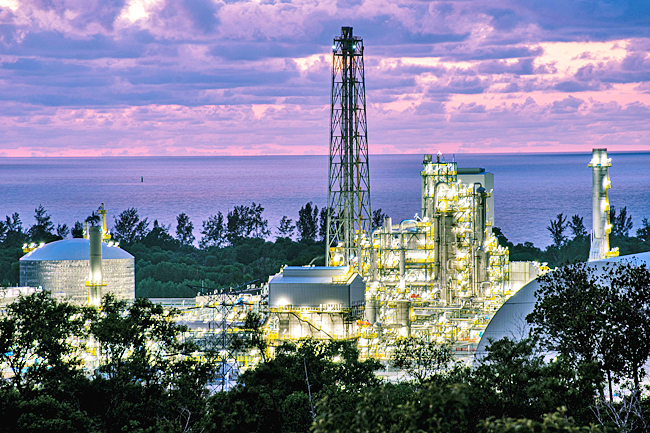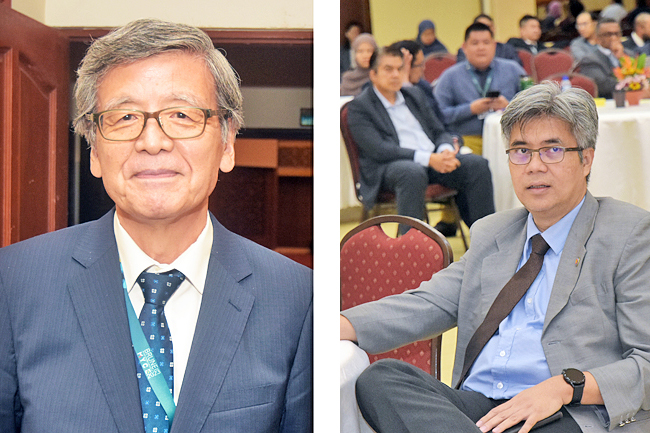Brunei, a small country with limited solar energy opportunities, should focus on utilising its gas resources to produce hydrogen while also implementing carbon capture, utilisation and storage (CCUS) technologies.
By adopting this approach, the country can efficiently harness its gas reserves and take significant steps towards reducing emissions.
Special advisor to the president on energy affairs at the Economic Research Institute for ASEAN and East Asia (ERIA) Shigeru Kimura shared this during a side-line interview at the recent Energy Seminar.
Shigeru noted that the Sultanate, as a prominent oil and gas nation, plays a vital role in exporting gas and liquefied natural gas (LNG) to the global market. The country should prioritise CCUS technologies adoption in its gas and LNG production processes to ensure a sustainable and environmentally responsible approach.
“The country can also opt to change from natural gas production to hydrogen,” he said.
The Japanese energy expert also said Brunei has the potential to benefit from its association with Japan, Australia, and other countries by fostering collaboration for the transfer and assistance of green technology.
According to the expert, the reduction in carbon dioxide emissions holds increasing significance with each passing year.


“To keep pace with global advancements, the country should earnestly focus on adopting and integrating the latest technologies, such as hydrogen and CCUS,” said Shigeru, emphasising pilot or demo projects like the Advanced Hydrogen Energy Chain Association for Technology Development (AHEAD) in Brunei Darussalam pioneered by Chiyoda Corporation, Mitsubishi Corporation, Mitsui & Co Ltd and Nippon Yusen Kabushiki Kaisha.
Moreover, while gas is a valuable energy with certain advantages, the special advisor believes it also has its limitations.
“It is essential to explore alternative fuels like hydrogen and adopt CCUS technologies for effective carbon management to address environmental concerns and move towards a more sustainable future.”
Meanwhile, in a separate interview, Executive Director of ASEAN Centre for Energy (ACE) Dr Nuki Agya Utama shared that “we cannot entirely abandon fossil fuel hydrocarbon as we enter the next era of new energy”.
He added, “The demand (for it) is increasing and we cannot rely solely on hydrocarbon alone. We must go for both approaches simultaneously.”
Further emphasising his point, Dr Utama said the region’s population is projected to experience a significant quadruple increase, propelling it to become the world’s fourth-largest economy. Consequently, regional energy demand will also rank as the fourth-largest globally.
Hence, the major challenge lies in preparing for the energy transition, particularly concerning supply.
“We must explore alternatives to heavily relying on hydrocarbons as the primary energy source.”
Additionally, Dr Utama said, the transport sector should prioritise investigating alternative energy solutions besides electronic vehicles (EVs), such as bio-fuel, which can provide more options to the people.
The executive director believes that the Sultanate can play a crucial role in energy transition.
“For Brunei to halt the production of oil and gas would be unwise amid energy transition as it is essential to find efficient and effective ways of utilising oil, gas, and even coal, during this transition period.”
Shigeru and Dr Nuki also spoke on their views on the success of the Energy Seminar.
Shigeru expressed his satisfaction that it had addressed all aspects related to energy transition, such as green technologies, interconnection, financing and the journey towards carbon neutrality.
He said, the transition is expected to be completed by 2050, taking several years to shift from coal to gas, and achieve a significant reduction in carbon emissions while simultaneously increasing the use of renewable energy.
Meanwhile, Dr Utama saw the significance of the seminar as a platform for communication and discussion among stakeholders, offering detailed insights into the crucial nature of energy transition that encompasses various resources and technologies.
With the theme of the seminar, ‘A Just Energy Transition Towards Green and Sustainable Development in Southeast Asia’, he said, there is “a strong message, that we need to go through energy transition. There is no way to avoid it”. – James Kon


